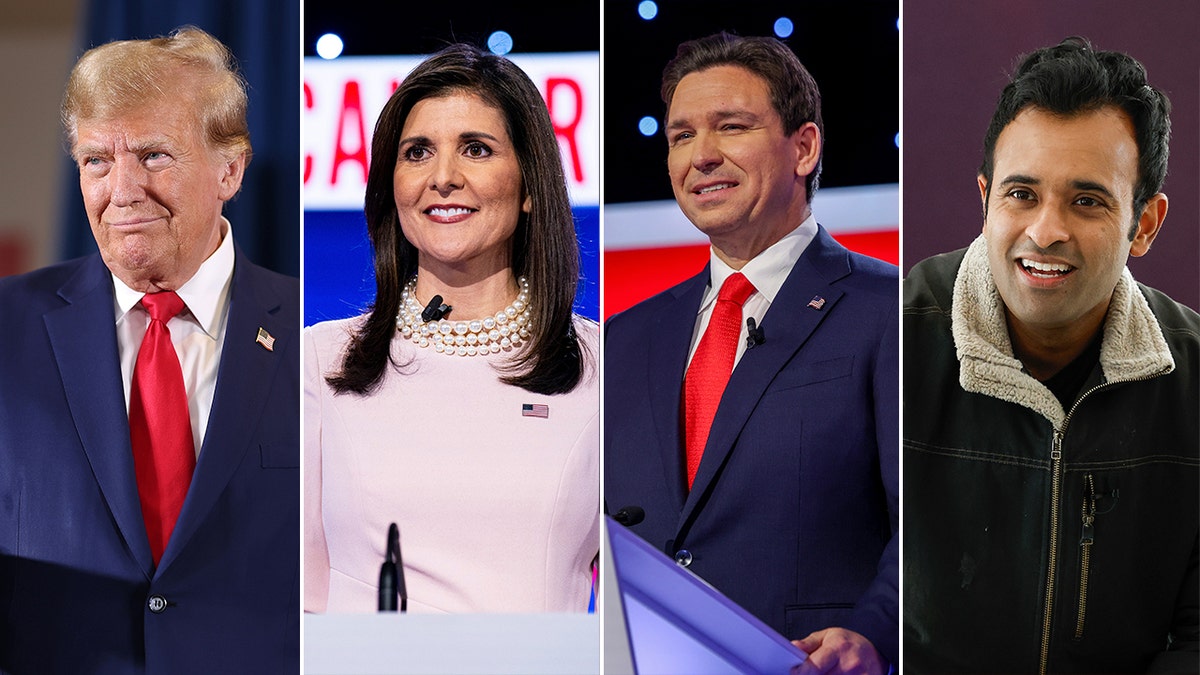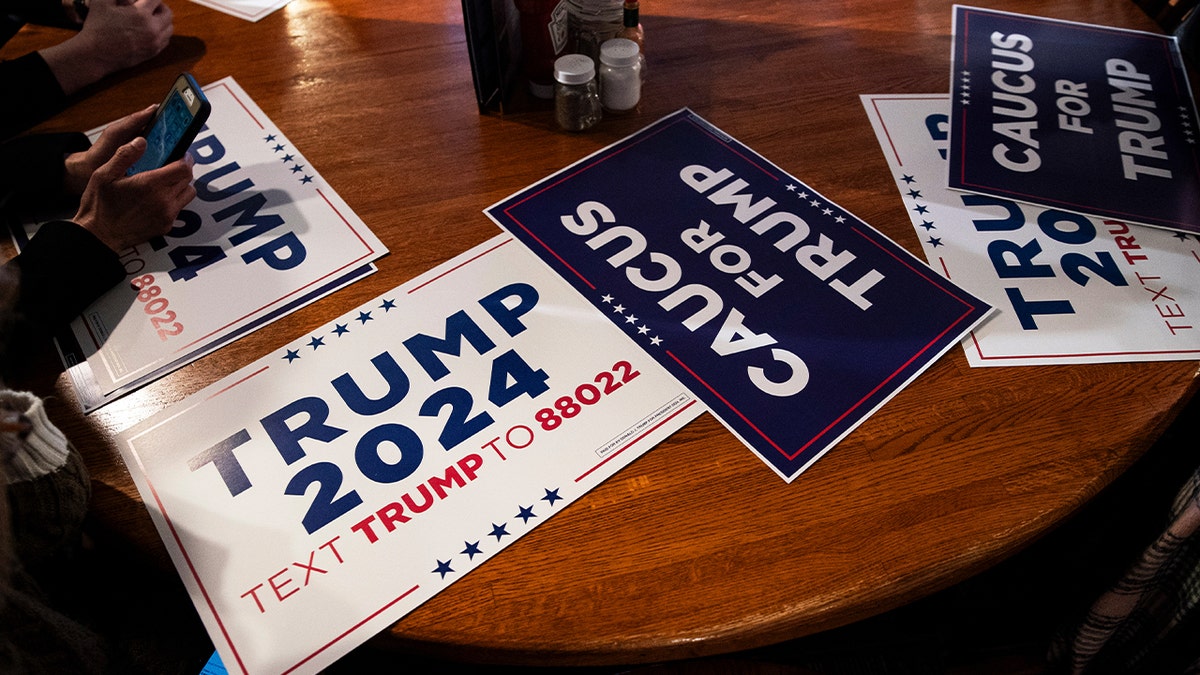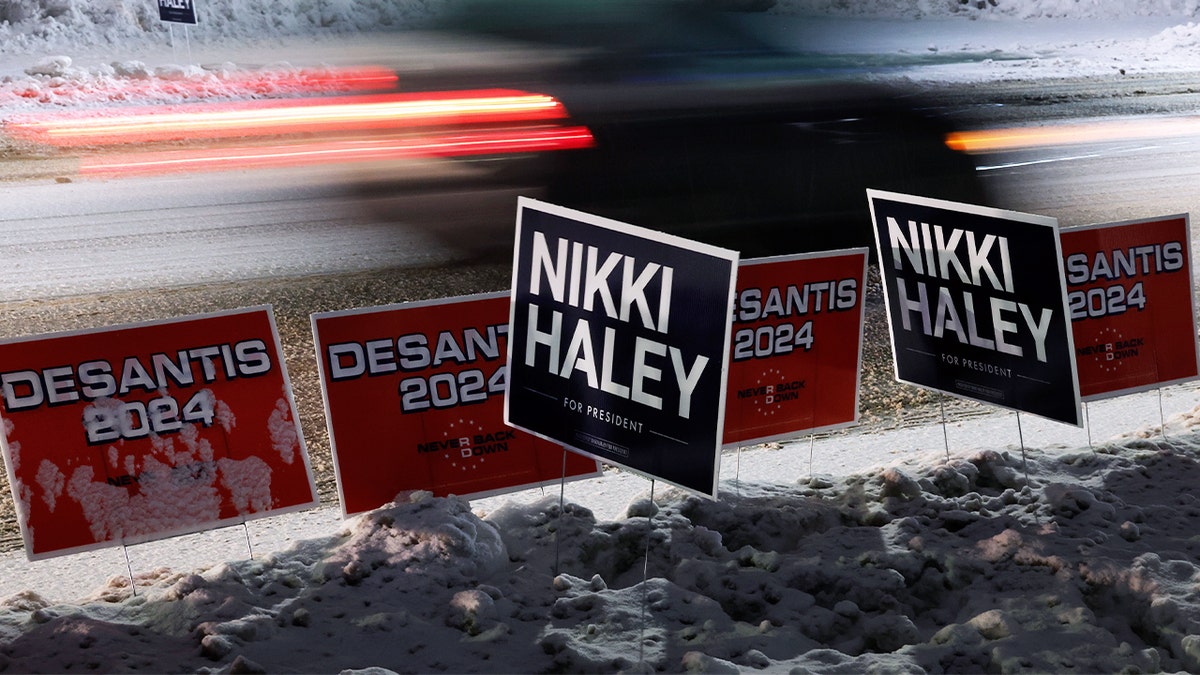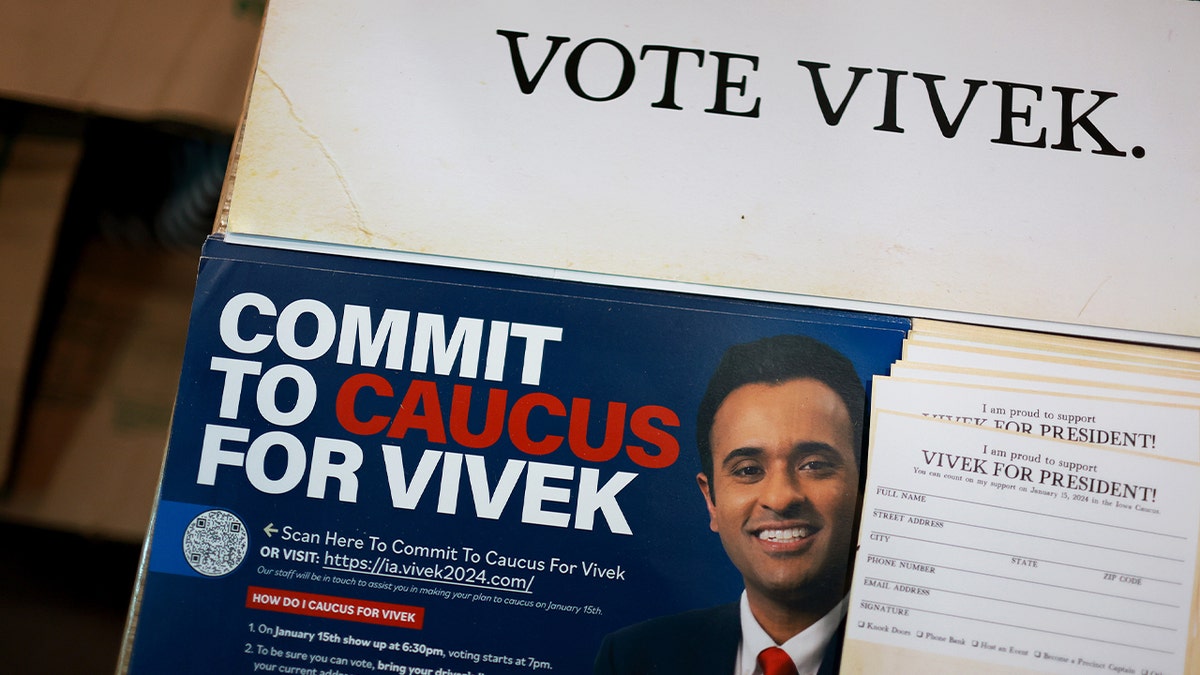Iowa’s record-breaking cold will affect voter turnout: Jim Geraghty
National Review’s Jim Geraghty and former Clinton pollster and adviser Mark Penn join ‘America’s Newsroom’ to discuss the upcoming Iowa caucuses and the inclement weather.
All eyes will be on Iowa on Monday as the state’s caucuses kick off the Republican presidential nominating calendar.
The caucuses, unlike most primary elections, are run by the state parties. There is no set list of authorized candidates for the Iowa Republican caucuses, so caucusgoers may write in any person they prefer. Most, however, will choose between the current GOP candidates: former President Donald Trump, former U.N. Ambassador Nikki Haley, Florida Gov. Ron DeSantis, entrepreneur Vivek Ramaswamy, former Arkansas Gov. Asa Hutchinson and entrepreneur Ryan Binkley.
Both the Republican and Democratic parties will hold their caucuses Monday night, but only Republicans will vote for a 2024 presidential nominee. Registered Republicans will cast their vote for who they want to be president, while registered Democrats will meet to conduct party business and will not hold a presidential preference vote.

Former President Donald Trump, former U.N. Ambassador Nikki Haley, Florida Gov. Ron DeSantis and entrepreneur Vivek Ramaswamy are vying for the Republican presidential primary nomination. (Getty Images)
So, how do the caucuses work?
The Iowa caucuses have been the first-in-the-nation balloting since the 1970s. Unlike on Election Day, the caucuses take place at night, and voters must typically attend in person to vote.
Starting at about 7 p.m. local time (CST), registered Republican voters will arrive and sign in at their respective precincts in 99 counties statewide, where they will hear brief speeches by representatives of each candidate.
The caucusgoers will then cast their ballots for who they want to be president, and the ballots will be counted immediately and in view of the caucusgoers and campaign representatives.

Campaign signs supporting former US President Donald Trump on a table prior to remarks by Donald Trump Jr., executive vice president of development and acquisitions for Trump Organization Inc., not pictured, at the Machine Shed in Urbandale, Iowa, US, on Thursday, Jan. 11, 2024. (Al Drago)
FIREBRAND HOUSE REPUBLICAN SEES ‘MASSIVE SURGE’ FOR DESANTIS IN IOWA: ‘CLOSER THAN PEOPLE THINK’
The results from each precinct will then be entered into an online system by each precinct chair, where they will be tallied by Republican Party of Iowa staffers and reported via the party's official website.
"It will be a very perfected operation, very slick," Steve Scheffler, an Iowa caucuses precinct chair, told Fox News’ Martha MacCallum on Wednesday. "It’s pretty straightforward."
"It’s pretty simple, it’s a grassroots effort," added Randy Weisheit, another chair. "They’ll be able to check in, they’ll get a slip of paper, they’ll be able to easily vote their preference for a presidential candidate. There’s county business that also goes on that we essentially look at, electing representatives to our county party as well as delegates to our county party. That’s it."

Campaign signs for Republican presidential candidates, former U.N. Ambassador Nikki Haley and Florida Gov. Ron Desantis line the road in front of Drake University on January 10, 2024, in Des Moines, Iowa. (Chip Somodevilla)
The goal is for the GOP to avoid the same reporting issues faced by the Iowa Democratic Party during the 2020 Democratic caucuses, when it didn’t certify the winner – then-Mayor Pete Buttigieg – until weeks later.
The debacle led to several changes by the Iowa Democratic Party, including demoting the state to Super Tuesday status instead of first in the nation. As a result, Iowa Democrats will mail-in their pick for the presidential nominee and have until March 5 – Super Tuesday – to do so.
On Monday, Iowa Republican voters will choose their presidential nominee, and the results of that vote will determine how many of the state’s 40 convention delegates each candidate will receive. Candidates win national convention delegates in direct proportion to the percentage of the vote they receive.

Campaign paraphernalia sits on a table as Republican presidential candidate businessman Vivek Ramaswamy holds a campaign stop at Chad's Pizza and Restaurant on January 11, 2024, in Grundy Center, Iowa. (Joe Raedle)
CLICK HERE TO GET THE FOX NEWS APP
While the Iowa caucuses will give the winning candidate an early lead in the delegate race, it does not necessarily predict who will become the party’s nominee. Iowa makes up only 1.6% of the total number of Republican delegates nationwide, but because it is the first to vote in the country, the results can have a significant effect on a campaign and have the potential to further winnow the Republican primary field.
The New Hampshire primary will be held just eight days after the caucuses.
Fox News’ Paul Steinhauser and the Associated Press contributed to this report.













































